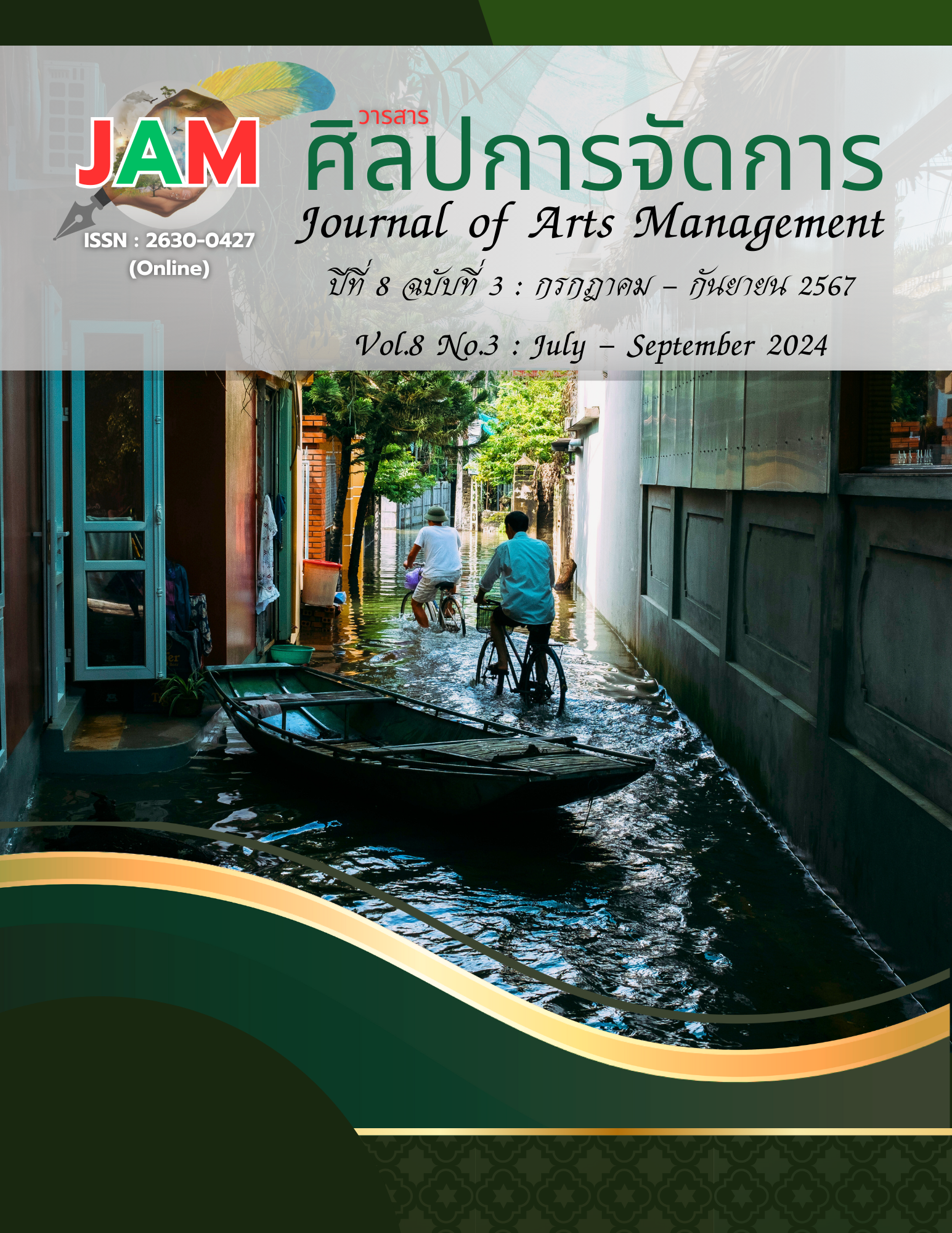Management According to the Principles of Good Governance Affecting the Success of the Work of Civil Servant Teachers Under the Phra Nakhon Si Ayutthaya Primary Educational Service Area Office 2: A Case Study of Wangchado Suparotrat Anukroh School
Main Article Content
Abstract
This article aimed to study 1) examine management according to the principles of good governance that affect the success of the work of civil servant teachers; 2) study guidelines for developing management according to the principles of good governance that affect the success of the work of civil servant teachers; 3) propose a conceptual framework for management according to the principles of good governance that affects the success of the work of civil servant teachers under the Phra Nakhon Si Ayutthaya Primary Educational Service Area Office. This research is qualitative. The key informants were 15 individuals, including civil servant teachers and educational personnel from the Phra Nakhon Si Ayutthaya Primary Educational Service Area Office 2, and Wangchado Suparotrat Anukroh School. The instrument for collecting data was the interview form. Analysis of data is done through content analysis. The research results were found as follows: 1. Management according to the principles of good governance that affect the success of the work of civil servant teachers under the Phra Nakhon Si Ayutthaya Primary Educational Service Area Office 2 comprises four aspects: 1) Recruitment; 2) Development; 3) Maintenance; and 4) Utilization. 2. The guidelines for developing management under the principles of good governance, which impact the success of the work of civil servant teachers, encompass three key aspects: 1) People; 2) Process; and 3) Money. 3. The conceptual framework for management according to the principles of good governance that affect the success of civil servant teachers under the Phra Nakhon Si Ayutthaya Primary Educational Service Area Office 2 consists of two aspects: 1) The morality factor: 1) The evaluator’s responsibility is to advise on carrying out different tasks, and the persons being evaluated themselves must engage in self-evaluation; and 2) The transparency factor: All members of the organization must share a common understanding of internal operations, and all procedures must be subject to auditing.
Article Details

This work is licensed under a Creative Commons Attribution-NonCommercial-NoDerivatives 4.0 International License.
Views and opinions appearing in articles in the Journal of Arts of Management It is the responsibility of the author of the article. and does not constitute the view and responsibility of the editorial team I agree that the article is copyright of the Arts and Management Journal.
References
Busayachan, K., & Sastngern, P. (2023). Administration in accordance with good governance of Wangchan Sub-district administrative orgenization, Kaeng Krachan District, Phetchaburi Province. Journal of Mani Chettha Ram Wat Chomman, 6(5), 406-425. https://so07.tci-thaijo.org/index.php/JMCR/article/view/3709
Kanjanasen, E. (2012). Local development by good governance principles of sub-district administrative organizations in Muang District, Ubon Ratchathani Province[Master’s Thesis, Ubonratchathani University].
https://www.esanpedia.oar.ubu.ac.th/e-research/?q=node/1722
Nakthipphawan, P., & Suebsor, S. (2022). School administration according to good governance of schools under Prachuapkirikhan primary education service area 1. Journal of Educational Innovation and Research, 7(1), 128-141. https://so03.tci-thaijo.org/index.php/jeir/article/view/258375
Phokam, W. (2020). School Administration based on good governance principle of Triamudomsuksanomklao school administrators, Journal of Graduate Studies Bansomdegchaopraya Rajabhat University, 5(1), 53-62. http://ejs.bsru.ac.th/gradjournal/?cont=journal5-1
Phosrida, J. (2018). Organizational management based on the principles of good govemance of the Administrative Office of the Pathum Wan Kwaeng Court[Master’s Thesis, Phitsanulok University].
Phrakhrupalad Prawit Warathummo., Phrakhubaidika Sakdanai Santacitto., & Sodprasert, S. (2021). The acceptation of good governance principles to public management. Journal of MCU Nakhondhat, 8(4), 37-47. https://so03.tci-thaijo.org/index.php/JMND/article/view/251622
Poopunsri, V., & Phonphotthanamat, W. (2021). Human resource development affecting organization effectiveness: A case study of local administration. Journal of Politics, Administration and Law, Faculty of Political Science and Law, Burapha University, 10(2), 311-330. file:///C:/Users/USER/Downloads/5672-Article%20Text-6037-1-10-20190328.pdf
Posri, B., & Chantuk, T. (2016). Curriculum management for the characteristic of professional labor in vocational education. Veridian E-Journal, Silpakorn University (Humanities, Social Sciences and Arts), 9(1), 1268-1287. https://he02.tci-thaijo.org/index.php/Veridian-E- Journal/article/view/61681
Ritcharoon, P. (2011). Social science research methodology. House of Kermyst.
Royal Decree on the Criteria and Methods for Good Governance. (2003, October 9). Royal Gazette. https://www.pong-dang.go.th/doc/law
Thonglao, C., Udomkijmongko, C., & Romyen, L. (2020). Good governance and service quality of the civil registration section of Chanuman district office, Amnat Charoen province. Journal of Local Governance and Innovation, 4(2), 253-266. https://so03.tci-thaijo.org/index.php /JLGISRRU/article/view/243013


